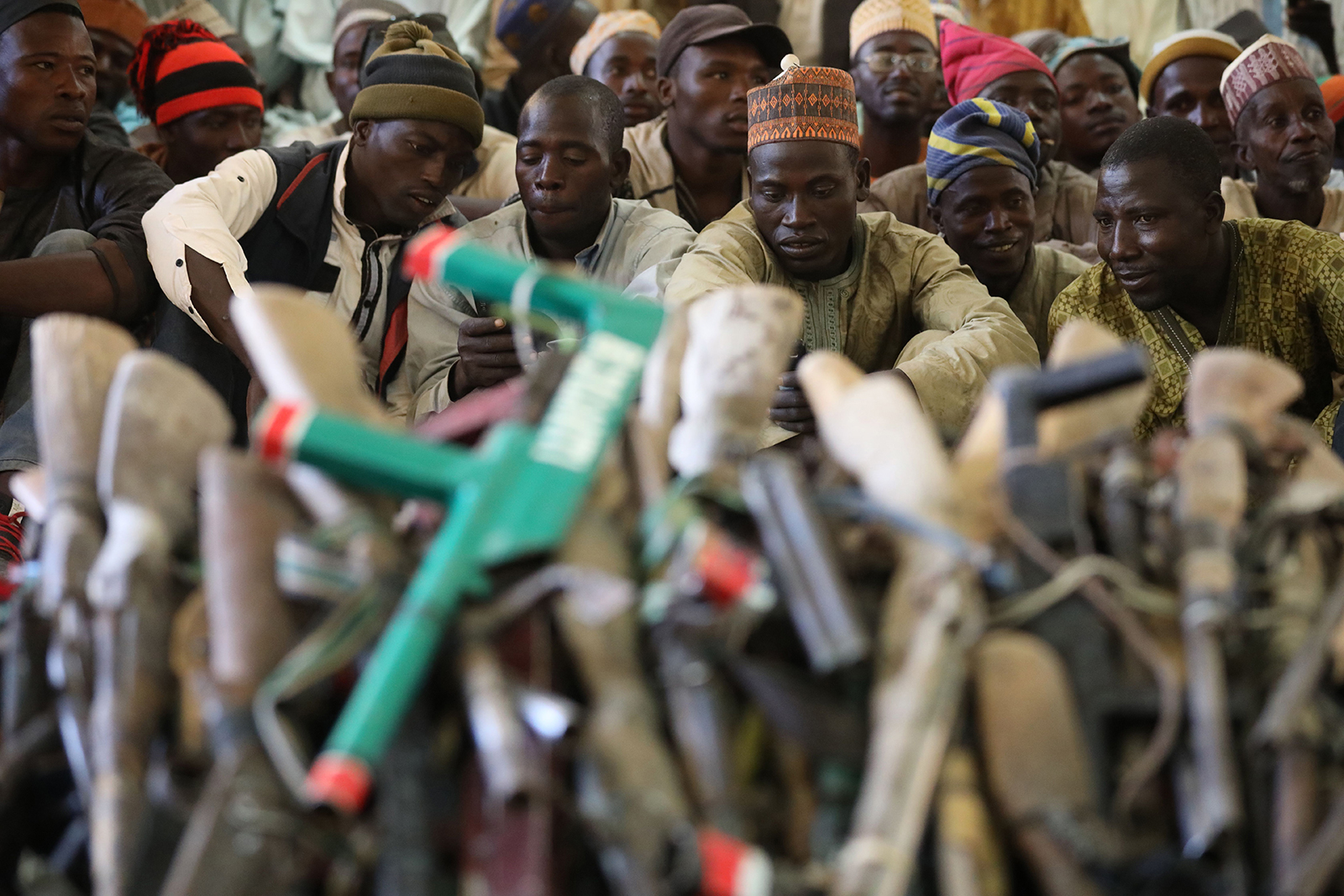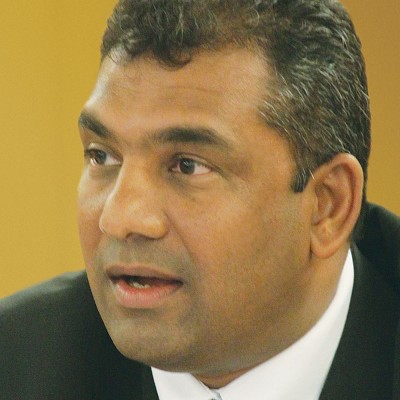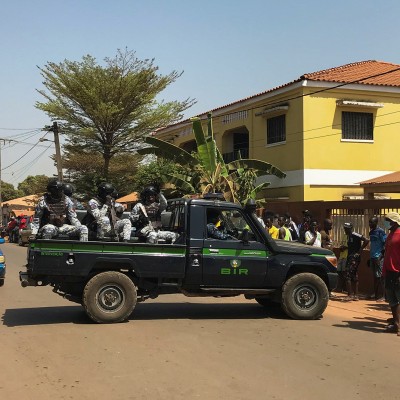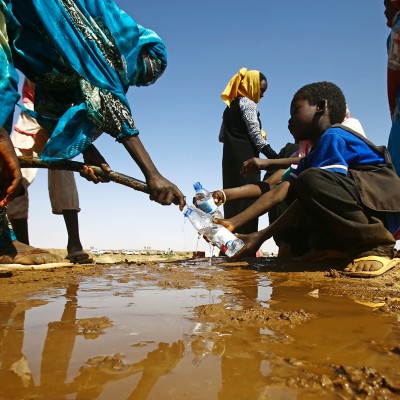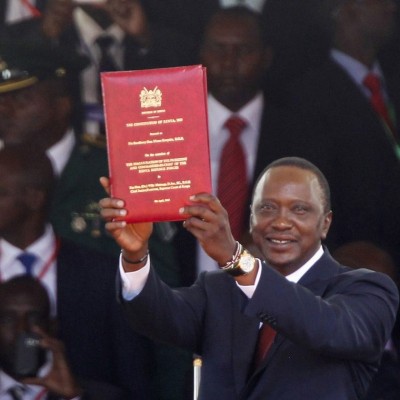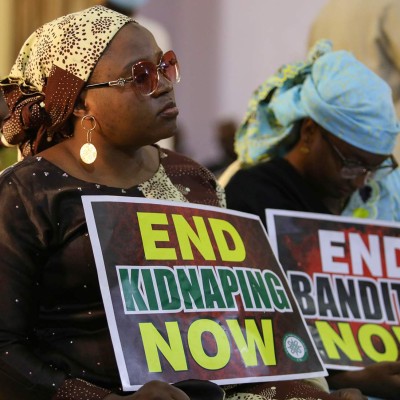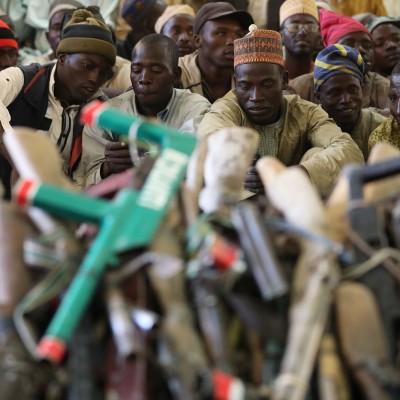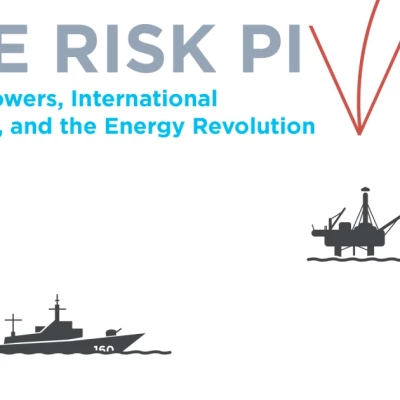Introduction
Northeast Nigeria is the epicentre of violent extremism in the country. Borno, Yobe, and Adamawa states, in particular, record high incidences of extremism regularly. Extremists have been responsible for various killings and wanton destruction in the north and other parts of Nigeria. At the centre of the violence are youths, who constitute the majority of the members of these extremist groups. Young people are easier targets for recruitment by extremist groups because of peer pressure, drug use, gang involvement, prior delinquency, family member gang-involvement, membership in a cult, and the quest for adventure, among others.
In spite of their involvement in violent extremism, it is recognised globally that the youth can be equal partners in its prevention. The youth should be considered a country’s asset, as the future of the country as well as having the potential to be leaders of today. However, a growing ‘youth bulge’ of unemployable young people trying to survive – and subject to recruitment by armed extremist groups – is problematic, and can even present a threat to prosperity and peace.[1]
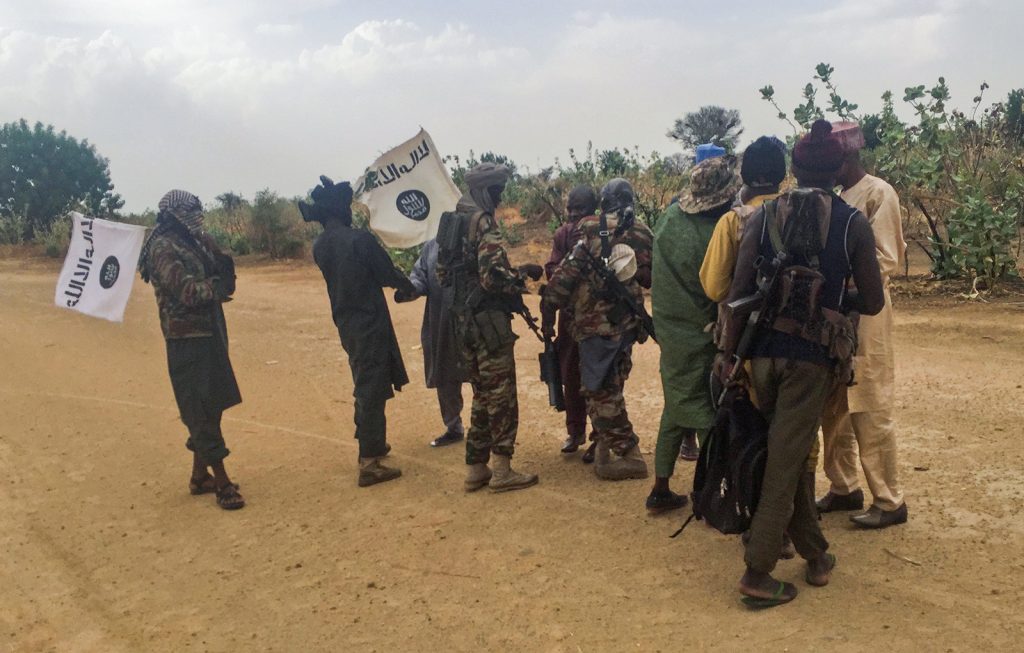
The Rise of Violent Extremist Groups in Northeast Nigeria
Violent extremist views in Nigeria can be traced back to organisations such as the Wahhabi-inspired Izala, the Islamic Movement, and the Maitasine Movement, which began as ethnically homogenous groups with purely domestic concerns.[2] Groups like the Izala, a Muslim fundamentalist group founded by Sheikh Mahmud Abubakar Gumi, the Islamic Movement of Ibrahim El-Zakzaky, which led to the Maitasine Movement and other ideologically inspired domestic violent extremists, have been active in the northern part of country for decades. The Maitasine conflicts in the north in the 1980s, for example, were the result of violent extremist views perpetrated by the group. All these groups were the forerunners of the Boko Haram, a Salafist sect affiliated with the Islamic State of Iraq and Syria (ISIS). Boko Haram was founded in Maiduguri in 2002 by Mohammed Yusuf, a native of Gashua in Yobe state. Boko Haram is at the root of violent extremism in Nigeria in recent times.
Boko Haram, which started as a peaceful proselyting group of moderate Muslim clerics, has in recent years evolved into a radical group with extremist views. For example, the group forbids western education, which it claims is corrupting, although some of its members are beneficiaries of western education.
Boko Haram is based in Northeast Nigeria, specifically Adamawa, Borno, and Yobe states, with operational bases in Cameroon, Chad, and Niger. They seek to establish a caliphate, or Islamic state, in Nigeria.[3] The group has attacked police headquarters, the United Nations (UN) office in Abuja, and churches, among others.
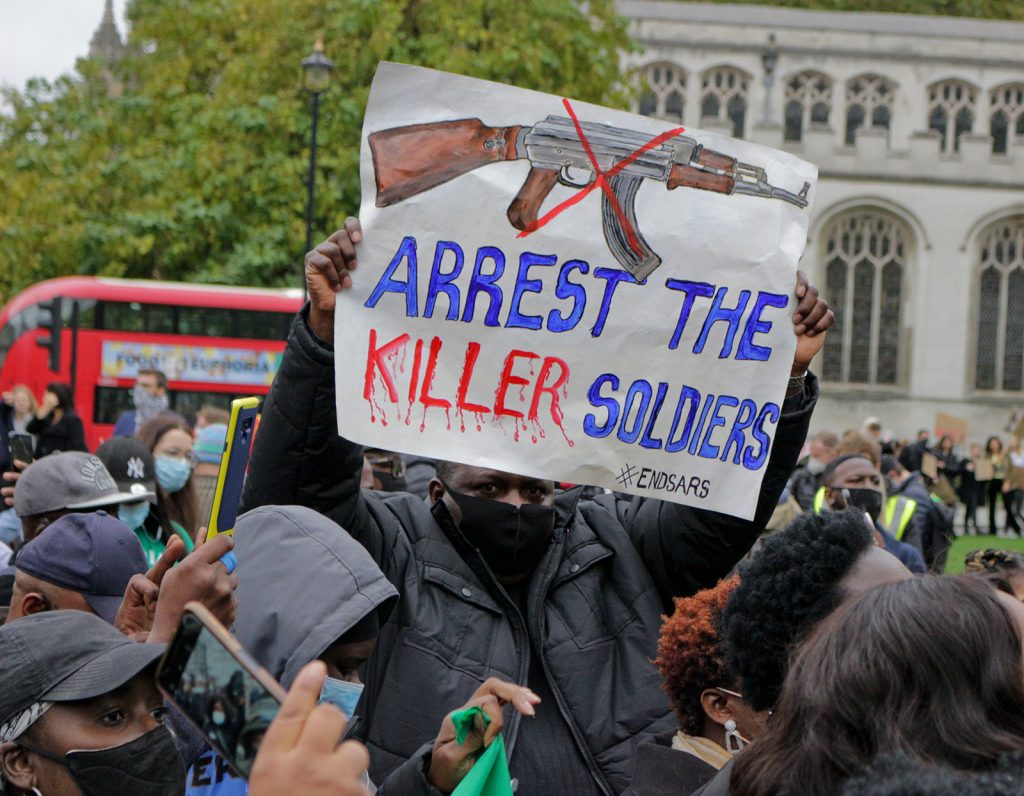
Youths as Victims and Perpetrators of Violent Extremism in Northeast Nigeria
Youths in Nigeria have achieved notoriety in recent years for their involvement in criminal acts, such as robbery, kidnapping, Internet fraud, rape, drug abuse, banditry, and violent extremism. Prior to this, they were widely seen as a driving force in the political arena of the country. They spearheaded Nigeria’s quest for independence from colonial rule. In the immediate post-independence era, youths were also involved in various forms of activism, which further shaped government decision-making. However, this golden age of characterised by youth activism in Nigeria has been replaced by a recourse to terrorism and violent extremist acts, among other crimes.
Extremist groups often recruit youths who are dissatisfied and willing to do anything under the illusion that it will improve their circumstances. Potential terrorist recruits typically fall into the age group of 15 to 25 years old. Between 2014 and 2016, Boko Haram reportedly abducted 10 000 boys and trained them as foot soldiers.[4] Since then, there has also been a steady flow of young people of both genders, into the group, either voluntarily or under duress.
Some youths are conscripted through coercion from family members who are already members of an extremist group. Female captives suffer the most, as they are held in captivity as sex slaves, molested and, in some instances, married off without their or their parents’ consent. Those who are fortunate enough to escape or be rescued return pregnant or with children born to sect members, and have to bear the stigma that goes with this. As victims as well as perpetrators of violent extremism, these young people are also trained as suicide bombers and deployed to commit acts of murder-suicide.
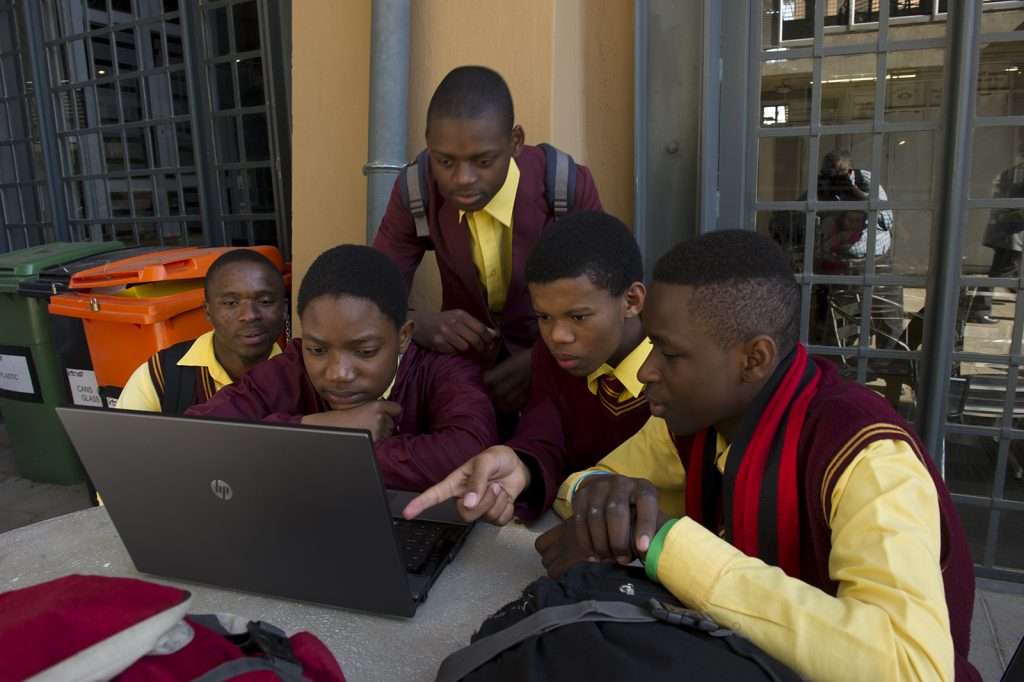
Anger over extra-judicial killings and injustice and the need for revenge are further reasons why youths join extremist groups. In a study conducted between December 2015 and January 2016 based on interviews with 119 former Boko Haram members, 57% of the respondents identified revenge as a major or the sole reason for joining the sect. These individuals described the State military as brutal, merciless, and pitiless.[5] Revenge, which is often directed at the State, and particularly the security forces, has a strong influence in the sect’s recourse to violence and members’ willingness to join the group because of the brutality they or family members suffered at the hands of security forces. Contrary to popular opinion, religion was cited by only 9.24% of the respondents and has relatively little or no influence on the decision to join the group, while unemployment (5.88%) also played a lesser role in the decision to become a member of an extremist group.It was found that a little over half (51%) of the respondents were employed before joining the organisation. However, poverty (15.13%) played a somewhat greater role compared to these factors.[6]
Social media also plays a large role in the radicalisation of young people who are the majority of users globally.[7] Nigeria is one of the countries with the highest number of Internet users in Africa, at 123.49 million people.[8] In recent years, extremists have used the Internet to recruit radicalised individuals and it is believed that the Internet will continue to play a crucial role in the recruitment, indoctrination, and training of future terrorists. Among extremist groups in sub-Saharan Africa, the Islamic State in the West African Province (ISWAP) is believed to be the most sophisticated and effective in terms of using technology and the media in its operations.[9]
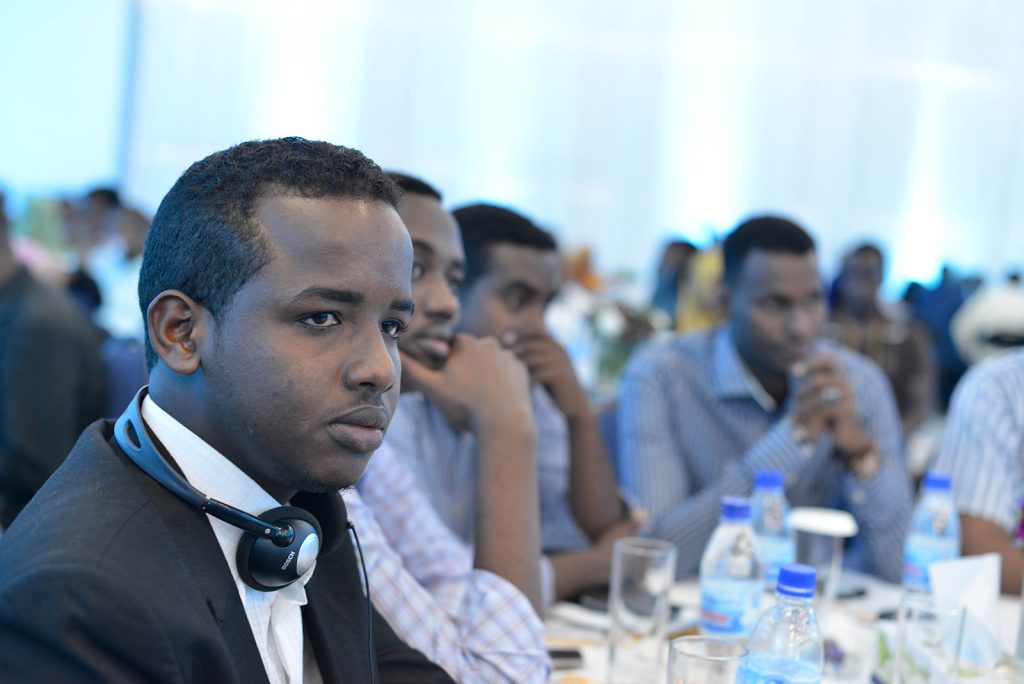
Frameworks for the Participation of Youths in Countering Violent Extremism
The importance of youths as equal partners in development has been recognised worldwide. In 1965, the UN General Assembly (UNGA) adopted the Declaration on the Promotion among Youth of the Ideals of Peace, Mutual Respect and Understanding between Peoples, stressing the importance of the role of the youth and their potential to contribute to security and development. Another UNGA declaration in 1979 proclaimed 1985 as ‘International Youth Year, Participation, Development, and Peace’ to increase awareness of the situation, needs, and aspirations of youths, with a view to engaging them in the development process.[10] The adoption of the World Programme of Action for Youth by the UNGA from 2000 further highlighted the importance of and universal concern over the issues faced by youths.
There has also been a series of declarations focusing on youth and development, such as the Amman Youth Declaration of August 2015, the UN Security Council (UNSC) Resolution 2250 on Youth, Peace and Security of December 2015, and the UNSC Resolution 2282 on the Review of the UN Peacebuilding Architecture – all underscoring the important role youths play in preventing conflict and maintaining peace and security despite violent extremism.[11] The 2015 UN Plan of Action Against Violent Extremism recognises the positive role young people can play in countering violent extremism (CVE).[12] At the regional level, organisations like the African Union (AU) and the Economic Community of West African States (ECOWAS) have long-standing youth charters and policies. However, while some national governments have similar frameworks, they do not yet fully mainstream youth participation in peace processes.
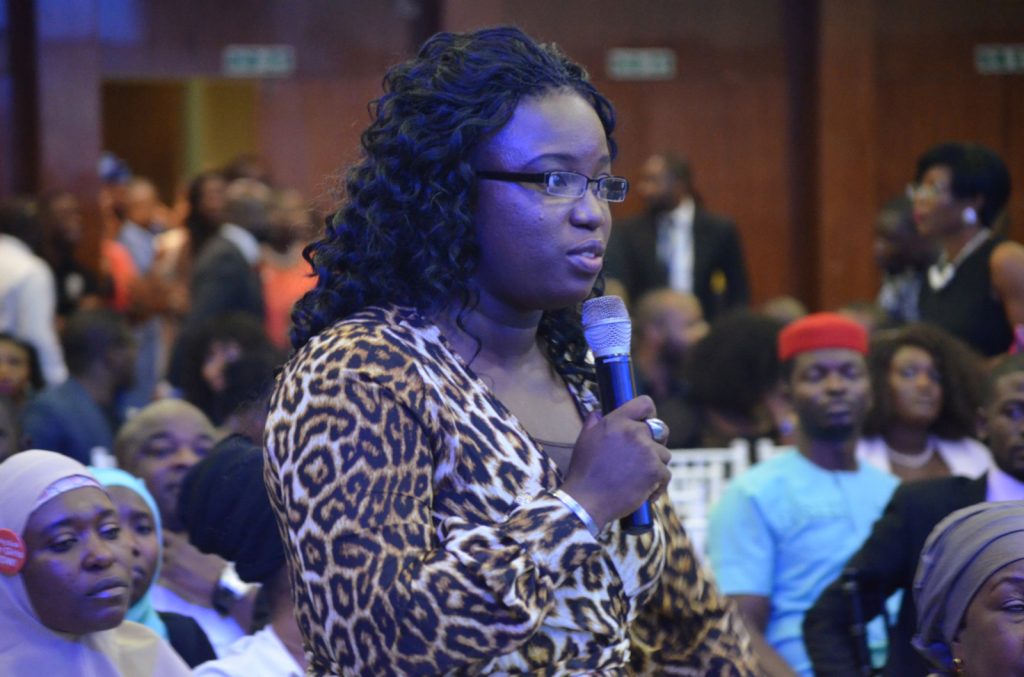
The Role of Youths in Countering Violent Extremism in Northeast Nigeria
The involvement of young people as perpetrators of violence has led various stakeholders in society to stereotype them as the problem. This overlooks the fact that the solution to violent extremism and other threats to safety and stability can be found in working with young people and tapping into their talents and potential to reform and rebuild society.[13] Despite efforts made globally to address violent extremism through youth engagement, the youth in Nigeria remains marginalised in this arena. Nigeria’s approach to insecurity issues has always been the deployment of police and military operations to troubled areas. Initiatives such as Nigeria’s Soft Approach to Countering Terrorism (NACTEST) do not include the youth, as CVE efforts have long been considered the exclusive preserve of older adult men. This is based on the assumption that extremism, like war, is primarily a problem for men to address. As a result, any youth efforts at tackling violent extremism in the Northeast are mainly spearheaded by individuals, civil society organisations (CSOs), and non-governmental organisations (NGOs). However, Nigerian youths can participate in CVE efforts through the various strategies discussed below.
Youth associations can play critical roles in CVE. Nigerian youths can form or belong to associations and NGOs and through these platforms, counter violent extremism by mobilising other young people who refuse to join violent extremist organisations. Youths can oppose extremist groups seeking to recruit members of CSOs because of the dynamism they bring to their activities. Globally, to extend their influence, acquire moral credibility, and gain supporters, extremist groups often create and support voluntary associations and give them money. By joining or forming associations and NGOs, young people can benefit from mutual support, strengthen their efforts to prevent radicalisation, resist the spread of false information and intolerance, and help those who have been radicalised to reintegrate successfully and peacefully into society. An example of this is The Tolerance Academy, a flagship project of the Youth Tolerance for Peace Development Initiative (YTFPDI) founded by Jonah Ayodele Obajeun, a Nigerian youth activist.[14]
Adopting targeted interventions is also a strategy that young people can employ in their efforts to counter violent extremism. For example, youths can intervene to help people who are on a path towards radicalisation, but are not yet involved in violent attacks. Such interventions can prevent individuals from joining dangerous groups and doing harm to themselves and others. As part of targeted interventions, youths can inspire their peers to make a positive difference, work together to help those struggling to resist extremism, promote peace and security locally and regionally, and make their voices heard in mainstream and social media.

The organisation of conferences, symposia, and seminars which focus on the role of youths in national security, peacebuilding, and preventing and countering violent extremism (P/CVE) is another strategy that can help the youth in curbing violent extremism. They can partner with other youth organisations within or outside the country to organise such events. Proper training may be required for effective organisation of such events and in this regard, they should partner with NGOs, CSOs, and advocacy groups who offer such training.
Apart from youths who have not joined extremist groups, former youth extremists can also be agents of positive social change by assisting households and communities to respond resiliently to violence. They can play a vital and irreplaceable role in efforts to bring societies together, generate prosperity and employment, and resolve personal, community and larger-scale conflicts and grievances, many of which drive radicalisation.[15] For example, young people can be important shapers of religious narratives that oppose violence by being part of efforts to promote peacebuilding and religious tolerance.
Despite its misuse, social media remains a major tool in the hands of the youth in their fight against violent extremist groups. Young CVE activists in Nigeria can use technology innovatively to prevent radicalisation and recruitment by forming and maintaining an online platform or presence for this purpose. An example from the UK is #NotAnotherBrother, launched by the Quilliam Foundation in 2015, which was an online and offline communications solution and a crowd-funded counter-narrative campaign to prevent youths from joining the Islamic State (IS).[16] It is important that young people who work to counter violent extremism are innovative, imaginative, and make full use of their ability to employ social media creatively, as the challenge is not just to oppose violent extremism but to develop better alternatives for people who are drawn to radical propaganda.
Young people can also be part of localised efforts to tackle violent extremism. As a core part of families and communities, young people have vital contributions to make to a more expansive understanding of the local context for CVE, including violent extremism in all its forms and manifestations, and its underlying causes. They can help formulate and deliver tailored CVE responses that are more localised, inclusive, credible, resonant, and therefore sustainable and effective. This is helpful, as youth-mainstreamed CVE needs to address localised youth-based recruiting, organisational youth dynamics, local youth dynamics, and other localised needs appropriately to be most effective.
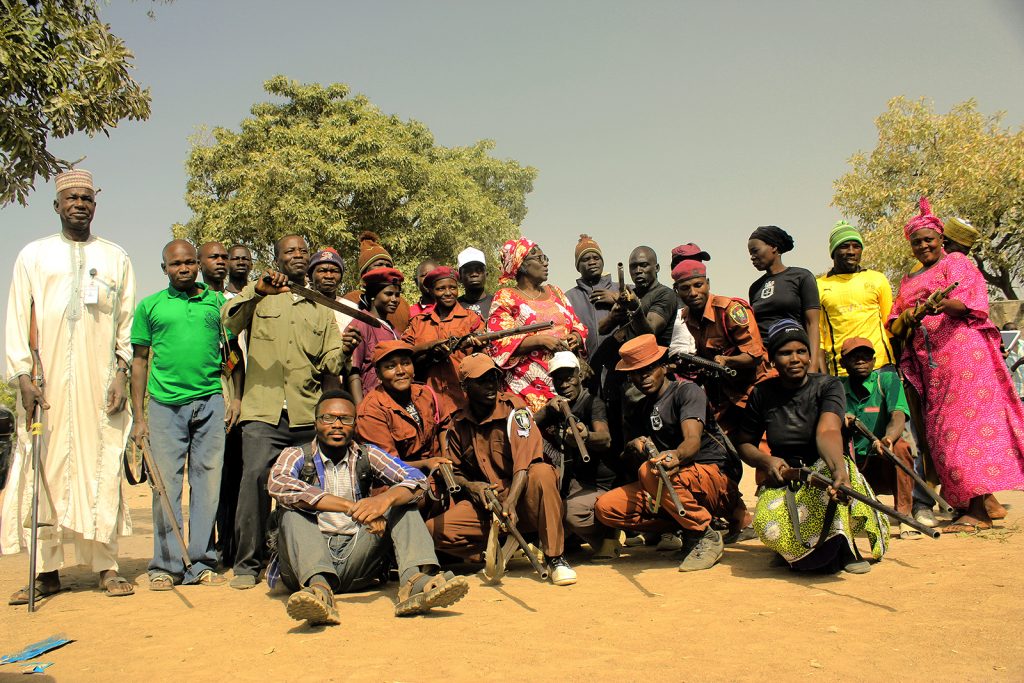
Conclusion
The youth are a fulcrum in every society and just as they are the future of a nation, so can they play a detrimental role and prevent the progress of a nation if they are not positively and actively engaged. Youth empowerment remains a veritable means to fast-track development, and engender and sustain peace in Northeast Nigeria and the country at large. To this end, youths must be empowered economically and educationally. Education, for instance, is critical to any role young people might play in violent extremism. Making young people more aware of its evils through education and critical thinking is the first line of defence against violent extremism. Additionally, the government at all levels should support youth initiatives financially and ensure that corruption practices which hamper the successful and efficient delivery of support packages to youth groups and organisations in the Northeast are addressed. Young people should also be mainstreamed in decision-making at all levels. States should partner with relevant actors to ensure that they can participate in peacebuilding activities. This will give the youth a sense of belonging and purpose.
It is imperative for the Nigerian Government, local authorities in the Northeast, international agencies, the private sector, CSOs, faith-based organisations and religious leaders to expand the role of youths in CVE efforts by recognising and supporting what young people are already doing to prevent violence and violent extremism and build upon existing capacities, networks, and resources for young people in these areas. Some of the efforts aimed at addressing violent extremism in the Northeast include the Youth Vigilante Initiatives in Madagali, Gombi, Mubi South, the North Local Government of Adamawa state, and the Biu Local Government of Bornu state. These initiatives, spearheaded by vigilante groups, operate check points and move from house to house to apprehend suspected Boko Haram members and hand them over to the military. The initiatives have been successful in the area of expelling the Boko Haram sect from communities where they operate and community members now have more faith in these youth initiatives than the Nigerian Government or the military. With the help of the Kinjir Foundation and the Centre for Sustainable Development and Education in Africa, the Madagali Youth Vigilante Initiative is presently being transformed into a sustainable grassroots peacebuilding organisation equipped with conflict-resolution skills to impact their communities positively.
The youth must be seen as presenting an opportunity rather than a threat. As such, young people should be perceived as important citizens, potential ambassadors for peace, and leaders in countering violent extremism.
Dr Angela Ajodo-Adebanjoko is an Associate Professor in the Department of Political Science at the Federal University of Lafia, Nasarawa state, Nigeria.
Endnotes
[1] Mlambo, Nontobeko (2020) ‘Africa: Triple Threat – Conflict, Gender-Based Violence and COVID-19,’ All Africa, 26 April, Available at: <https://allafrica.com/stories/202004240366.html> [Accessed 5 June 2020].
[2] Buchanan-Clarke, Stephen and Lekalake, Rorisang (2016) ‘Let the People Have a Say’, Afrobarometer Policy Paper No. 32, June.
[3] Botha, Anneli and Abdile, Mahdi (n.d.) ‘Getting Behind the Profiles of Boko Haram Members and Factors Contributing to Radicalisation Versus Working Towards Peace’, KAICIID International Dialogue Centre, Available at: <https://www.kaiciid.org/publications-resources/getting-behind-profiles-boko-haram-members-summary> [Accessed 29 January 2020].
[4] Hinshaw, Drew and Parkinson, Joe (2016) ‘The 10,000 Kidnapped Boys of Boko Haram’, Wall Street Journal, 12 August, Available at: http://www.wsj.com/articles/the-kidnapped-boys-of-boko-haram-1471013062> [Accessed 18 March 2020].
[5] Botha, Anneli and Abdile, Mahdi (n.d.) op. cit.
[6] Ibid.
[7] Johnson, Joseph (2020) ‘Africa: Number of Internet Users in Selected Countries 2019’, Available at: <https://www.statista.com/statistics/505883/number-of-internet-users-in-african-countries> [Accessed 26 November 2020].
[8] Cadmus, Femi (2021) ‘Technology, Legal Information, and Access to Justice in Africa’, In Ndulo, Muna and Emeziem, Cosmas (eds), The Routledge Handbook of African Law,Abingdon, UK: Routledge.
[9] Ajodo-Adebanjoko, Angela (2020) ‘The Rise and Influence of ISIS in Sub-Saharan Africa’, in Kieh, George and Kalu, Kelechi (eds), Civil Conflicts and Peacebuilding in Africa, Washington DC: Lexington Books.
[10] Dokubo, Charles (2018) ‘Youth Empowerment and National Development in Nigeria: Niger Delta Amnesty Program in Perspective’, Paper presented at a National Defense College seminar on Enhancing National Development through Youth Empowerment, 3 October, Abuja.
[11] UN (2015) ‘Amman Youth Declaration Adopted at Global Forum on Youth, Peace and Security’, Available at: <https://www.un.org/youthenvoy/2015/08/amman-youth-declaration-adopted-global-forum-youth-peace-security> [Accessed 18 March 2020].
[12] Obi, Cyril (2017) ‘Preventing Youth Engagement in Organized Violence’, Draft Report of UN Expert Group on Youth, Peace and Security: Social Issues and Social Policies, pp. 4–7, Available at: <https://www.un.org/development/desa/youth/wp-content/uploads/sites/21/2017/12/17-EGM-Advance-Report-on-Youth-Peace-and-Security.pdf> [Accessed 18 March 2020].
[13] Ekpon, Theophilus (2017) ‘The Role of Young People in Preventing Violent Extremism in the Lake Chad Basin: A Contribution to the Progress Study on Youth, Peace and Security Mandated by UN Security Council Resolution 2250 (2015)’, Civil Society Platform for Peacebuilding and Statebuilding, Available at: <https://www.youth4peace.info/system/files/2018-04/12.%20TP_The%20Role%20of%20Young%20People%20in%20Preventing%20Violent%20Extremism%20in%20the%20Lake%20Chad%20Basin_CSPPS.pdf> [Accessed 22 August 2020].
[14] Kofi Anan Foundation (2014) ‘Extremely Together, Countering Violent Extremism: A Guide for Young People by Young People’, Available at: <https://www.extremelytogether-theguide.org/pdf/ExtremelyTogether_CounteringViolentExtremism_Guide_2017_March.pdf> [Accessed 26 November 2020].
[15] Ibid.
[16] European Commission (2016) ‘#NotAnotherBrother’, Available at: <https://ec.europa.eu/home-affairs/networks/radicalisation-awareness-network-ran/collection-inspiring-practices/ran-practices/notanotherbrother_en> [Accessed June 2022].

